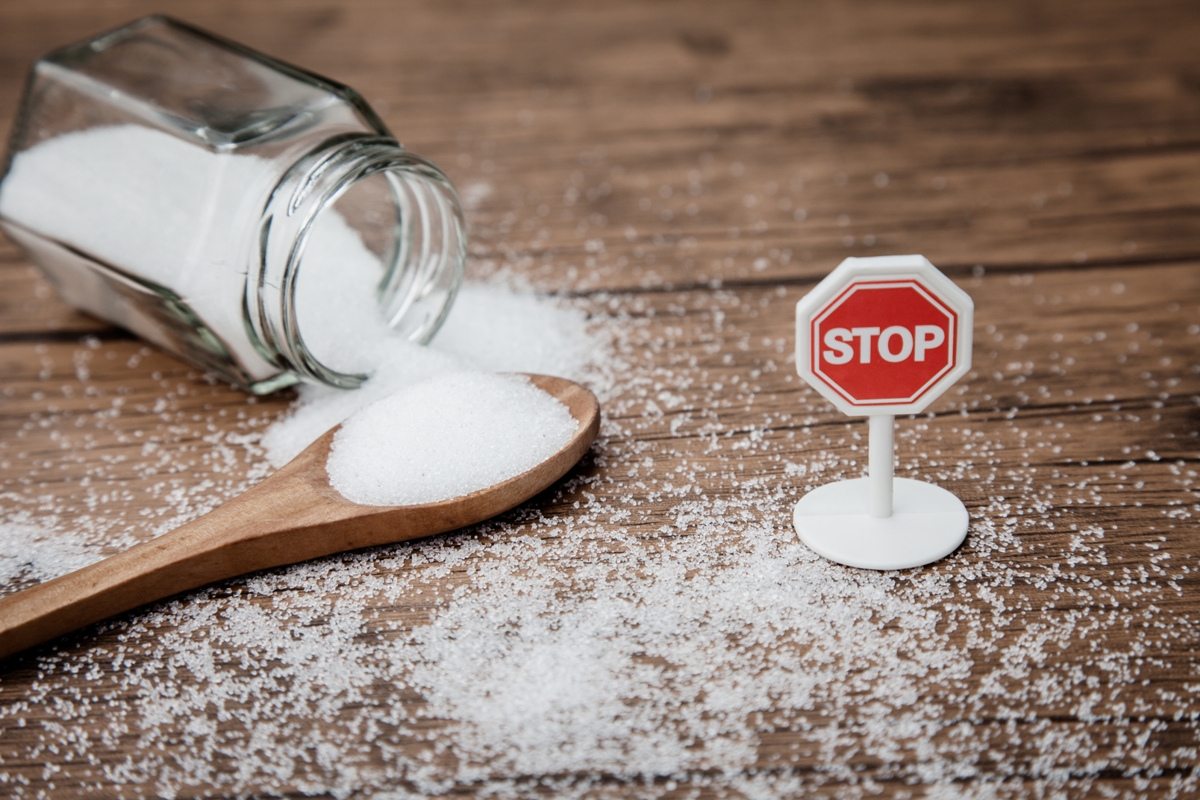What is sweet in the mouth is not always good in the stomach, goes a popular saying. And how true it is, writes Dr Nandini Saini
We are surrounded by sugary food, it is a part of our regular meals and no festivity is complete without it.
Why is sugar bad for us?
Having sugar in large quantities can be detrimental to your health. It can lead to dental decay, skin aging, increase in acne, and inflammation of joints- causing joint pains. It is a common cause of depression in adults.
A high intake of sugar has been also been linked to a number of medical conditions like obesity and cardiac problems. It can also aggravate diabetes, leading to a whole new set of complications. It can cause damage to important organs such as liver, kidneys and pancreas.
At the least, it can make you feel fatigued and listless during the day, taking away from your productivity.
Conclusion: Try a ‘sugar detox’ for a healthier physical and mental you.
Why is it so difficult to give up sugar?
We all know that excess sugar is bad for us, but the thought of giving it up seems worse…ever wonder why?
Having sugary foods is usually a reward we give ourselves, a treat. Little is it known that sugar actually triggers our brain’s reward system, causing us to indulge more!
It is also addictive. It results in release of Dopamine- the addictive hormone. The more you have, the more you crave!
Our body is often conditioned to have sugar. It becomes tolerant to it; hence a higher amount is needed to satisfy us. It releases opioids in our brain, increasing the craving even more.

What exactly is Sugar Detox?
A sugar detox basically means cutting out all added sugar from your diet…you can start by cutting out sugar altogether for a few days, then slowly introducing natural sugars like fruits into your routine.
Let’s see what affect sugar reduction can have on your body. And a way to beat the side effects.
How does one go about it?
Some people find it useful to just cut added sugar from their diet completely… for most, it is difficult, especially if you’re used to having cakes, cookies, processed foods, carbonated and sweet drinks. It is easier to gradually reduce the sugar intake. Even small changes over a period of time are effective.
Here are a few tips:
Go Slow: Start by eliminating the obviously sweet foods you indulge in, like cakes, brownies, cookies. Try having tea and coffee without that teaspoon of sugar and cream.
A healthy breakfast: Replace those sugar-coated cereals with a veggie omelette or oats porridge. Include fresh fruits, like berries. Starting your day on a healthy note motivates one to stick to the diet.
Hydrate yourself: Drink water every few hours. Replace the soft drinks and packaged juices with water, as much as possible. You can always add a twist of lemon for taste. Not only does it reduce the sugar craving, it also helps keep you healthy!
Make the right choice: Next time you reach for that favourite granola bar, give a thought to the hidden sugar it contains. Opt for dry fruits, nuts or fresh fruits instead.
Always, always check the label: Most packaged foods, whether they are biscuits, pasta sauces, breads etc, contain added sugar. Always check the label to see the contents.
Change your diet as a whole: Try to have a nutritionally balanced, wholesome diet, instead of just cutting back on the sugars. Include healthy portions of grains, naturally sweet fruits, nuts, seeds and veggies in your daily routine. Remember, proteins and healthy fats are your friends! Add a little ghee to your diet, without guilt!
Avoid artificial sweeteners: Artificial sweeteners taste sweeter than actual sugars, often altering your taste and increasing the sugar craving. Try, as far as possible, to avoid them.
Think other spices: Give your palate a change of taste…adding spices like cinnamon, nutmeg and vanilla to your food can trick your palate into believing its tasting sugar.
Plan your meals: Always plan your day’s meal in advance, keeping options for snacking. Dieting without plans can be difficult. Think of alternatives you can keep in hand for the surge in sugar craving.

The benefits
The cravings reduce: This is one of the first changes observed…in fact, after a while, the sweet taste seems excessive and unpalatable.
Feel focused: The fatigue and fogginess you experience reduces with sugar detox. The thinking clears up, you feel sharper.
Lose weight: Reducing even a small amount of sugar can help reduce body weight. Get fitter, feel healthier!
More energy: Though the initial days may leave you lethargic, ultimately the detox leaves you with high levels of energy.
Sleep is better: As the sugar cravings reduce, people end up resting and sleeping better.
Clear skin: Reducing sugars also helps stabilise hormonal levels, giving us healthy, clearer skin. Also, the risk of skin cancer reduces.
Other benefits include good dental hygiene, good moods, less mood swings and an overall sense of wellbeing.

How it affects you
Cutting down sugar from your diet is bound to take its toll …. The body’s reaction in various cases is different. The symptoms and their severity depend to a large extent on the amount of sugar you have.
It also depends on how you cut back on the cravings; people completely eliminating sugar from the diet are prone to get more severe symptoms than those who gradually taper off.
Most people feel the effects for a few days, some for a couple of weeks. As the body gets used to the low sugar, the side effects also reduce.
Symptoms experienced are both physical and mental.
Physical Symptoms:
Fatigue: The first few days may leave you fatigued and lethargic, as your body copes with the low sugar levels.
Nausea
Lightheadedness
Headache and body ache
Bloating and stomach cramps
Mental symptoms:
The craving hit: Most people find themselves craving sweets even more; they might even crave other comfort food like chips, pasta. This is a phase; it passes as the body gets used to the detox.
Mood swings: Mood swings are quite common, as lack of sugar reduces the triggering of dopamine and the feel-good hormones.
Cognition difficulties: It sometimes becomes difficult to focus on day-to-day activities. Concentration towards work or studies can reduce.
Sleep pattern changes: You might find yourself awake at odd hours, or have trouble sleeping. Alternatively, some people sleep more than is usual for them.
Feeling of anxiety: It is common to feel on edge and restless in the initial days of the detox.

Managing the side-effects
Though it seems difficult, the side effects of the detox can be managed with a little patience.
Here are some tips for making yourself comfortable:
Give yourself time:
It may seem difficult to completely eliminate sugar from your diet, especially if you have a sweet tooth. Take it slowly, start with the foods you can easily avoid, like cakes and cookies and gradually move on to the foods you find hard to give up, like the spoonful of sugar in your morning tea.
Proteins are your best friends:
Proteins promote a feeling of fullness, automatically helping in reducing the craving. Make sure to include protein such as eggs, fish, chicken, paneer and legumes in your diet. Try keeping small portions of nuts with you, for those in-between sugar cravings.
Water is always the best option:
Replace the soft drinks with water; have a glass of water every few hours. Not only does it reduce your sugar cravings, it also promotes adequate and easy bowel movement, keeping you healthy.
High Fibre is the way to go:
High fibre foods take longer to get digested, keeping your sugar cravings at bay. They also help in regulating the blood sugar levels. Try including a portion of broccoli to your plate, or flax seed to your meals.
Exercise:
Exercise utilises sugar, stabilising the blood sugar levels in the body. A 15 minute walk can increase your stamina and reduce fatigue; it also acts as a mood elevator.
Don’t ignore your sleep:
Sleep deprivation causes low moods, sugar fluctuations and fatigue, and can send you running for that quick sugar fix. Make sure you get adequate sleep; it can help you fight off the side effects of sugar as well as putting you in a healthier state of mind.
Fight the stress:
Try to reduce your stress levels; they can cause your sugar cravings to increase. Take the much needed “Me Time”; read a book, take a walk, even cooking is a known stress buster!
Motivate yourself:
You might need a push now and then to continue with this diet…keep a diary and write down what motivates you…it could be general health consciousness, a desire to lose weight, look good. If you feel yourself falling off the wagon, just read the motivators again, it may help you strengthen your resolve.
Remember, the biggest beneficiary of this detox will be YOU! Though it can be tough, the ultimate rewards- a good health…is completely worth it.








